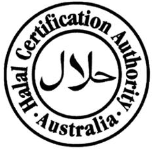In a fractured decision, the U.S. Supreme Court held on June 28, 2023 that two key provisions of the Lanham Act that prohibit trademark infringement do not extend to conduct that occurs outside the United States. Although all nine justices agreed that the Lanham Act does not apply extraterritorially, the Justices split five-to-four on the proper extraterritoriality framework. Writing for the majority, Justice Samuel Alito stated that extending the Lanham Act to conduct that occurs outside the United States is “wrong,” even if the conduct creates a likelihood of confusion in the United States, and that the contrary rule “would give the Lanham Act an untenably broad reach that undermines our extraterritoriality framework.” In contrast, Justice Sonia Sotomayor argued in an opinion concurring in the judgment that the majority decision “significantly waters down protections for U.S. trademark owners”, and called for “Congress to correct the Court’s limited reading of the Act.” Abitron Austria GmbH v. Hetronic Int’l, Inc., 600 U.S. _ (2023).
Read More

